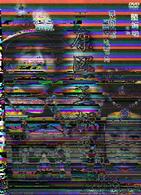- ホーム
- > 洋書
- > 英文書
- > History / World
Full Description
Argues that intoxication was fundamental to German physiological, psychological, and psychiatric research during the nineteenth century.
Intoxicating substances can be found lurking in every corner of modern life, and Matthew Perkins-McVey's pathbreaking book offers the untold story of how they were implicated in shifting perceptions of embodiment found in the emerging sciences of the body and mind in late-nineteenth-century Germany. Their use in this experimental context gave rise to a dynamic conception of the subject within the scientific, psychological, philosophical, and sociological milieu of the era. The history of the modern biological subject, Perkins-McVey argues, turns on "intoxicated ways of knowing."
Intoxicated Ways of Knowing identifies the state of intoxication as a tacit form of thinking and knowing with the body. Intoxicants force us to feel, intervening directly in our perceptional awareness, and, Perkins-McVey contends, they bring latent conceptual associations into the foreground of conscious thought, engendering new ways of knowing the world. The book unfurls how intoxicants affected nineteenth-century German science and how, ultimately, the connection between mental life and intoxication is taken up in the works of Friedrich Nietzsche, Max Weber, and Sigmund Freud, bringing the biological subject out of the lab and into the worlds of philosophy, psychoanalysis, sociology, and politics.
Contents
Convergences
Part I. Vital Substances
1. Pharmacy Bodies
2. Brown, Kant, and the Crisis in Medicine
3. Brunonian Naturphilosophie and Intoxicated Knowing
4. A (Brief) Historical Ontology of an Alkaloid
Part II. Contra Intoxicatio
5. Great Expectations: The Humboldts, Johannes Müller, and the Rise of Neomechanism
6. The "Young" Neomechanists and the Problem of the Brain
7. A Tale of Two Cities: Berlin, Leipzig, and Scientific Psychology
Part III. The Intoxicated Subject
8. A Postalkaloidal "Golden Age" of Intoxication
9. The Life and Times of Emil Kraepelin: Drugs, Bodies, and Minds
10. Kraepelin's Nosology and an Intoxicated "Physiologie der Seele"
11. Drunken Songs of Tomorrow: Nietzsche, Freud, Weber, and Intoxication
A Horizontal Fall
Acknowledgments
Notes
Bibliography
Index
-

- 電子書籍
- 両極の少年【タテヨミ】第38話 pic…
-

- DVD
- 康熙王朝⑤





